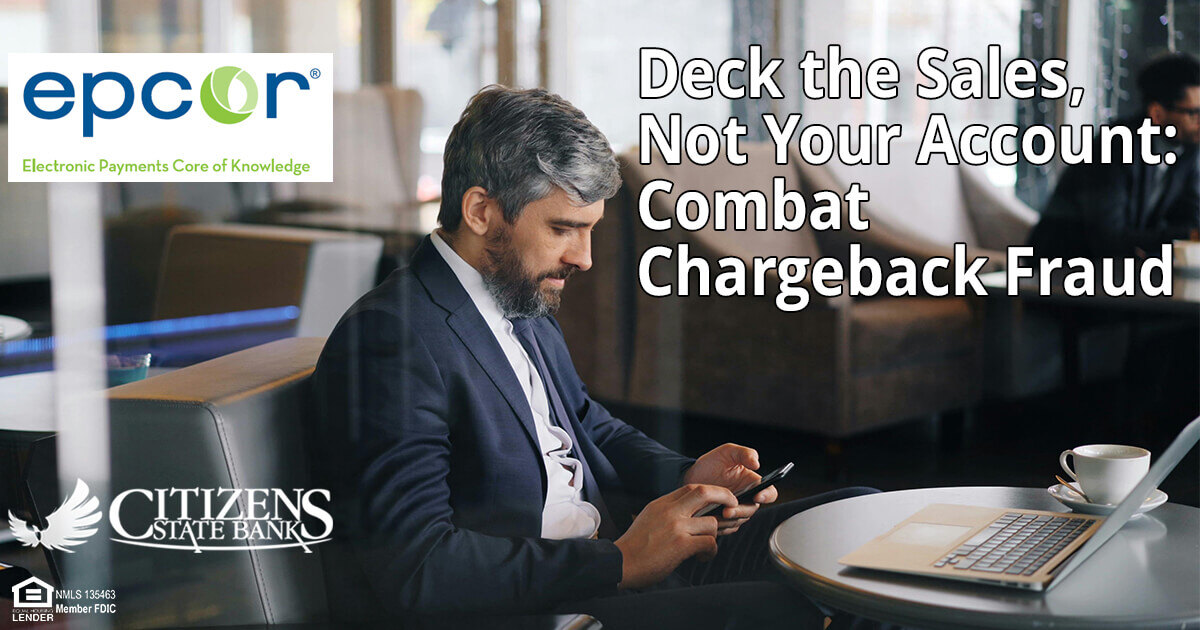The holiday season is a busy and productive time for small businesses, but it also comes with an increased risk of chargeback fraud. According to Fintech Global, chargeback fraud costs organizations billions annually, and the stakes are even higher during the holidays. Chargeback fraud happens when a consumer disputes a legitimate transaction, forcing the organization to return the funds and often lose the product or service as well. This can be especially damaging when your cash flow is crucial to meeting holiday demands.
Why Chargeback Fraud Spikes During the Holidays
During the holidays, fraudsters take advantage of the high volume of transactions. While some chargebacks are unintentional, such as a consumer not recognizing a charge, others are deliberate, with fraudsters using stolen cards or exploiting lenient return policies. The busy shopping season makes it easier for these fraudulent activities to go unnoticed until it’s too late.
How Chargeback Fraud Affects Organizations
Chargeback fraud can have serious consequences for small businesses, especially during peak holiday times. This includes:
- Lost Revenue: You lose both the product or service and the payment.
- Chargeback Fees: Payment processors often charge a fee for every chargeback, adding to your costs.
- Damage to Reputation: Too many chargebacks can harm your relationship with payment processors, making it harder to accept payments in the future.
- Operational Disruptions: Dealing with chargebacks takes time away from serving consumers, affecting your operations.
Strategies to Protect Your Organization
To minimize the risk of chargeback fraud, here are six practical strategies your organization can implement:
- Maintain Clear Communication: Ensure that your return, refund and shipping policies are clearly stated and easy to access. Transparent communication helps prevent misunderstandings and
reduces disputes.
- Keep Proper Documentation: Record every transaction, issue receipts and retain proof of delivery. Having documentation is essential if you need to defend against a chargeback.
- Verify Transactions: During the busy season, it’s important to confirm the identity of cardholders for high-value purchases. Consider verifying IDs or using extra security measures for larger transactions.
- Prioritize Payment Security: Make sure you’re using secure payment gateways, implement two-factor authentication and employ fraud detection tools to protect your organization from fraudulent transactions.
- Address Disputes Promptly: If a consumer raises a concern, resolve it as quickly as possible to prevent it from escalating into a chargeback. The sooner you address disputes; the better chance you have to prevent fraud.
- Monitor Chargebacks Regularly: Review your bank statements and merchant accounts regularly for any signs of chargeback activity. Timely responses to your financial institution can help you minimize the financial impact of chargebacks.
Stay Vigilant and Proactive
By taking these steps, you can significantly reduce the risk of chargeback fraud and protect your organization from the financial strain it can cause. The holiday season should be a time to grow business, not to deal with fraud. Stay vigilant, implement these strategies and work closely with your financial institution for implementing added security.
Want to sleigh the holiday season and stay ahead of the fraudsters? Boost your fraud-fighting knowledge by:
- Visiting BanksNeverAskThat.com and reading through their information and resources, taking quizzes and more.
- Watching EPCOR’s fraud-fighting Did You Know videos, available on YouTube, LinkedIn and EPCOR’s website.
- Taking advantage of the Consumer Financial Protection Bureau’s fraud and scam resources.
- Stay tuned to Fraud.org’s fraud alerts.
The views, information, or opinions expressed in this article are solely those of the author and do not necessarily represent the views of Citizens State Bank and its affiliates, and Citizens State Bank is not responsible for and does not verify the accuracy of any information contained in this article or items hyperlinked within. This is for informational purposes and is no way intended to provide legal advice.
